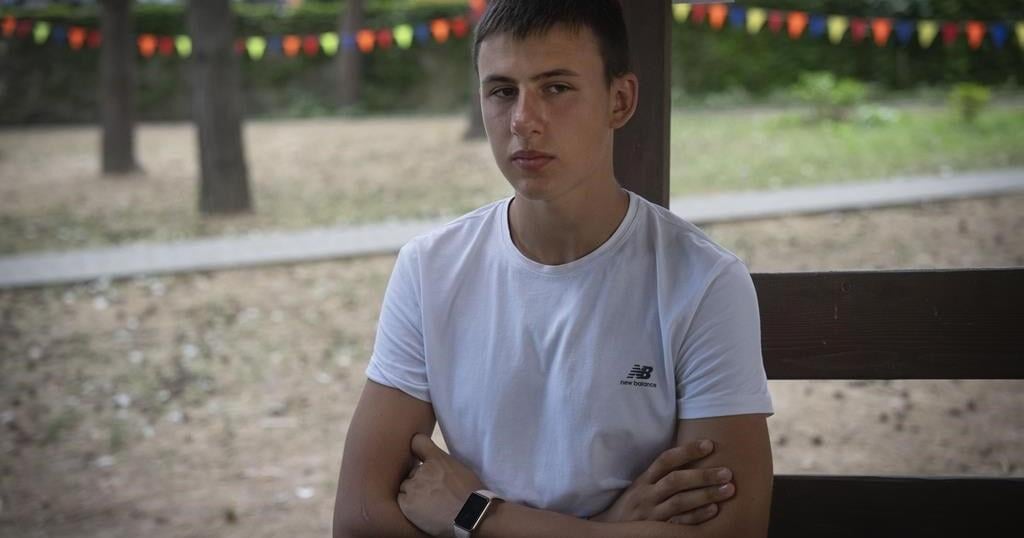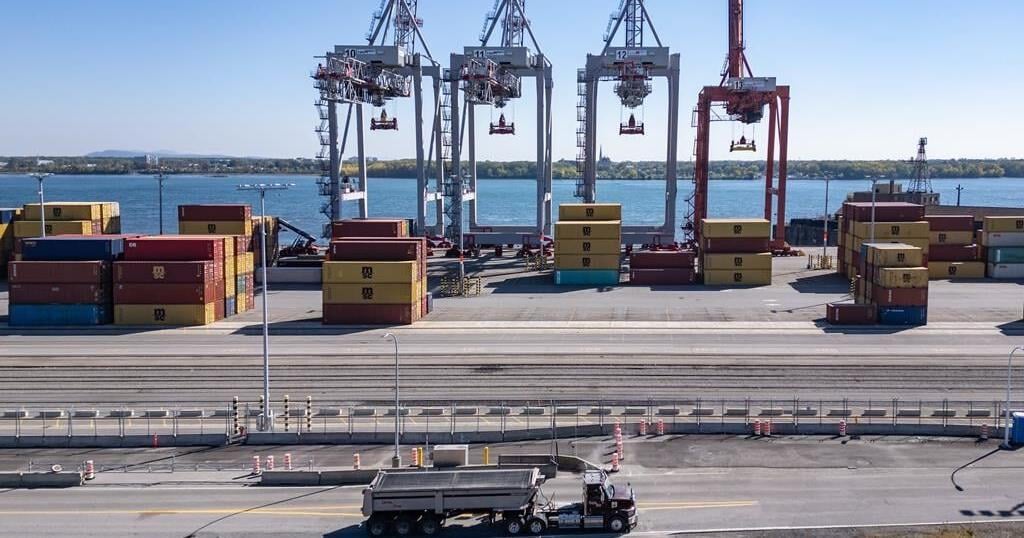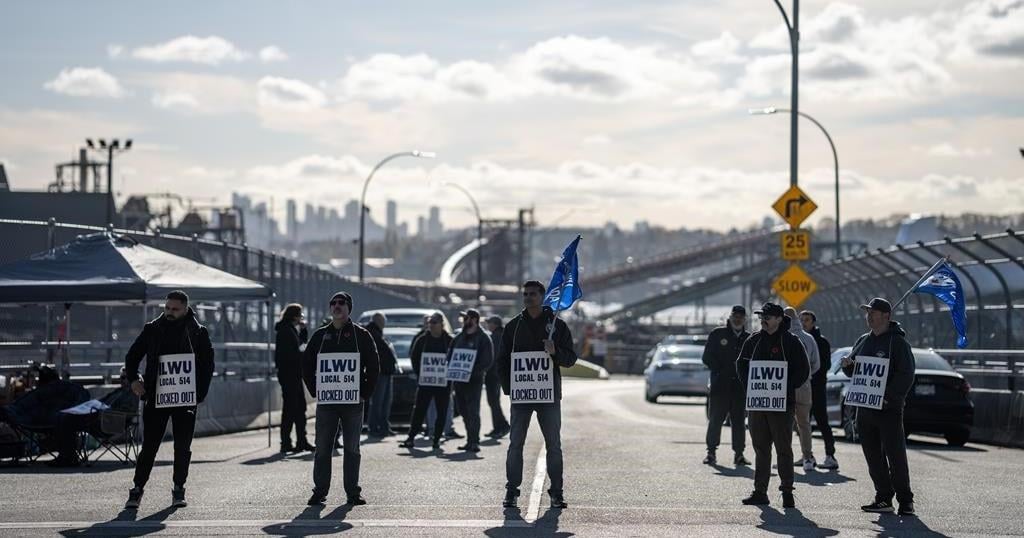UZHHOROD, Ukraine (AP) — This week marks the start of the school year in Ukraine, a pivotal time for any student, especially for teenagers in their final year of high school. Ukrainian teens have more than just grades and university choices on their minds — they are grappling with the realities of war.
One student, still haunted by memories of his hometown in the Luhansk region, nearly all under Russian control, struggles to adapt to life in the Kyiv area after surviving the Russian occupation. Homesickness lingers, a constant reminder of what he left behind. Two other teens agonize over choosing their future professions: They make plans for the future while navigating daily threats from Russian-guided bombs and missiles in their front-line cities.
Just before the school year started, the three found a time of peace and healing at a summer camp on the opposite side of the country. The camp for children affected by the war was created and organized by the Voices of Children charity foundation and sponsored by the Olena Zelenska Foundation, the charity set up by the wife of Ukrainian President Volodymyr Zelenskyy.
For the three teens, it was a rare chance to socialize with other young people from around Ukraine who faced war trauma and to take a much-needed break to find further strength.
‘I am confident that I will have a future’
What 16-year-old Oleksandr Hryshchenko liked most about the summer camp in Uzhhorod, near the western border with Slovakia, was that “there was no focus on the war.”
“You relax, talk about what’s been weighing on you during the day,” he said. His village, Vorozhba, is located at the other end of the country, less than 10 kilometers (6 miles) from the Russian border, in the northern Sumy region.
For him, the camp was a rare opportunity to escape the relentless explosions and danger, especially after the Ukrainian military advanced into Russia’s Kursk region, about 50 kilometers (30 miles) away.
“People who are farther from the border are still enjoying, celebrating the capture of new villages, but they don’t understand, don’t feel, don’t know what’s happening in the border area,” he said. “The Russians have started striking towns much more aggressively.”
Shelling has fluctuated in intensity throughout the war, but this summer has been particularly challenging. While the Russians previously relied on artillery, they now target Vorozhba with far more terrifying glide bombs, which he describes as “much worse.”
While Oleksandr had the opportunity to work with psychologists at the camp and communicate with other children there, he remains in constant contact with his family. During a recent strike, his house was shaken by blast waves from a bomb, causing a light fixture to fall from the ceiling.
His final year at his hometown school will largely be online. Many people left the village this summer, but Oleksandr said his family isn’t planning to leave just yet.
“We know that if we leave now, there might be nothing left to return to,” he said. His entire family, including his grandparents, still lives there, while his father has been serving on the front lines since the early days of Russia’s full-scale invasion in February 2022.
“For me, my father is the bravest person in my life,” Oleksandr said. The war has changed him, he said: He used to have a softer character, but now he’s more reserved.
The impact of the war is a constant worry, he said. “You think about it every night before bed. You mull over it all day, wondering what comes next.”
Despite the turmoil, Oleksandr feels he is taking control of his destiny, concentrating on his final year of school, preparing for entrance exams and choosing a university.
“I am confident that Ukraine will have a future, I will have a future, and I know that everything will be fine, but we need to get through these times,” he said.
A community of witnesses to war
Sixteen-year-old Valerii Soldatenko still has visions of his hometown in the Luhansk region which he fled on Aug. 29, 2022, after living under Russian occupation for about six months.
“There are moments when I almost see it before my eyes. I see familiar faces, I see those beautiful white hills,” Valerii said. His native village, Bilokurakyne, in the northern part of the Luhansk region, is occupied by Russian forces.
For him, education was a crucial factor in his decision to leave. In August 2022, just before the new school year began, he fled because the Russian curriculum had been imposed.
“I really didn’t want to conform to the Russian education system,” he said. “So it was clear that I was at the greatest risk and could put my family in the most danger.”
His family settled near Kyiv, but Valerii still struggles to adjust. He longs for his friends, the familiar landscapes of Luhansk and his old house — a crafted building of clay, hay, and chalk with a blue facade and white columns.
Among the few belongings he brought with him is a walnut shell from a friend, a cherished reminder as time and distance make it harder to stay in touch.
“Before we left, we hoped to be home by November or December, celebrating Christmas and New Year with family,” Valerii said. “But as you can see, I’m sitting here, not in my native village.”
He came to the camp to connect with other “witnesses of war,” seeking both reflection and insight into how his peers in front-line areas are coping.
As he prepares to start his final year of high school, he is finalizing his choice of university, although he is still unsure whether to pursue a career as a journalist or a history teacher.
“I would say that (the war) took away my childhood, especially after I fled,” he said.
‘Being a teenager in wartime is hard’
Kseniia Kucher, 16, dreams of her graduation day, envisioning a celebration or a trip with her classmates. But with schooling in the northeastern city of Kharkiv mostly online due to routine Russian strikes, that may not be feasible.
Her family has packed its “emergency bags” with essential items and documents but currently has no plans to leave.
“It’s really hard to go through, especially when the strikes happen at night. You literally wake up from being jolted in bed because of the explosions,” she said. “And yet, it’s easier because you’re still at home. You’re with your loved ones and not in a foreign environment.”
At camp, hundreds of kilometers (miles) from Kharkiv, Kseniia found a rare chance to decompress. “I even started having some dreams here,” she said.
She particularly cherished the late-night conversations with peers, in which they shared their experiences and connected personally.
“I don’t have many friends in general, in life. And now they’ve all scattered,” she reflected. When she’s at home, she tries not to dwell on her prewar life but instead focuses on the present.
“I live in the moment and don’t make big plans for the future because, understanding the current situation … I don’t know what will happen in a year,” she said.
She lives with her mother and younger brother, while her father serves on the front lines. Kseniia sees him once every few months.
While she spoke, the distant sounds of thunderstorms kept distracting her with their resemblance to explosions.
“Being a teenager during war is hard,” she said. “You don’t fully understand your emotions, and everything affects you — from a hurtful word to a barrage of missiles. It’s hard to live with that.”
























